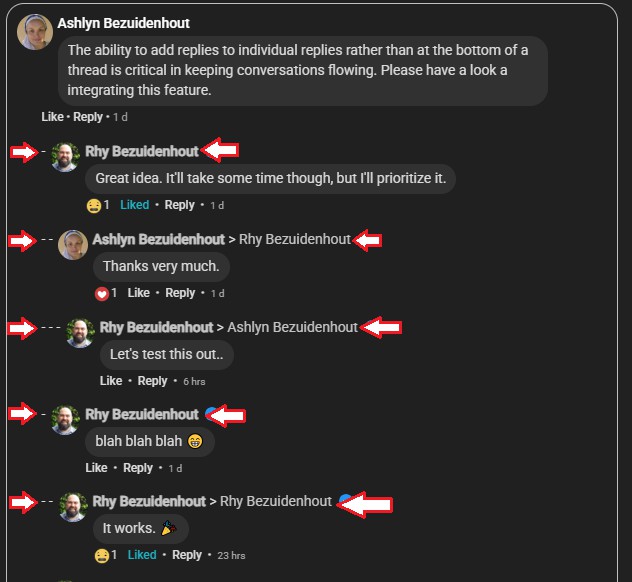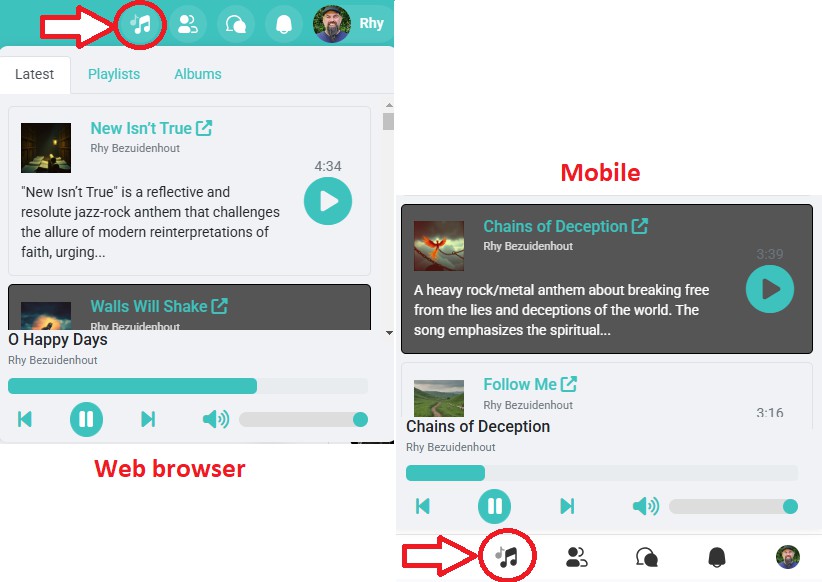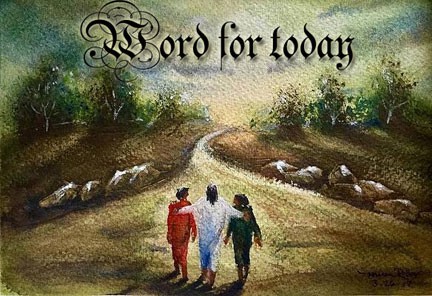Watch
Events
Articles
Market
More
Matzot (plural of unleavened bread) is spelled the same as Mitzvot (commandments) in Hebrew. Remember what Yeshua said about life on bread and the bread of life?
All leaven was to be removed from Hebrew homes before the #exodus began (Exodus 12:15). Exodus 12:17 literally translates to "guard the matzot", not keep the Feast of Matzot. Once we have cleaned house, keeping it clean is a matter of constant vigilance and progressive sanctification. Why not act today as if you have already left Egypt? Start now, and remember that we keep God's commandments because we were saved, not in order to be saved.
#passover #torah



You Can Now Reply Directly to Replies! ?
This long-awaited feature is finally here! It took some time (and maybe a few gray hairs ?), but now your replies will stay exactly where they belong—right within the conversation.
? No More Lost Replies – Your response to a specific reply will no longer be pushed to the bottom of the thread. Instead, it will appear directly under the comment or reply you’re responding to, making conversations more natural and easier to follow.
? Clear Conversation Flow – Replies are now structured according to both the discussion thread and the time they were made.
? Visual Cues – A single dash (-) with no ">" means it's a direct reply to the main comment.
A dash with a ">" and a name shows it's a reply to the person next to the ">".
Each new level of replies will be visually indented to make back-and-forth discussions easier to track.
Check it out and let me know if you have any feedback on how we can improve the visual experience even further.
Happy replying! ??




The Times has the nomination for FBI director, Kash Patel, getting "bruised" in questioning today: https://www.nytimes.com/live/2....025/01/30/us/kash-pa



TTN Music is Now on TTN Social! ??
Thanks to a fantastic suggestion from David Martin, we’ve taken music integration to the next level—introducing a first-of-its-kind feature on any social platform! You can now listen to music while browsing TTN Social.
? New Music Icon – You’ll notice a music icon in the main menu on both the browser and mobile apps. Click it to open the new music panel.
? Latest Songs – The first tab displays the newest tracks available on TTN Music.
? Your Playlists – If you've logged into TTN Music with your TTN account and created playlists, you’ll find them under the Playlists tab.
? Albums for Artists – If you're an artist and have uploaded an album, you’ll see your music listed under the Albums tab.
Best of all, your music keeps playing even when you close the menu—just tap the music icon again to hide it while continuing to enjoy your tunes!
Give it a try and let us know if you run into any issues. Enjoy the music! ??




Three of the Gospels say that #yeshua's disciples "prepared the Passover". I don't see any reasonable way to interpret this phrase except that they killed and cooked a #passover.
https://www.americantorah.com/....2022/04/26/killing-t



013025
WORD FOR TODAY “do you seek justice?”: Mat 12:18 "BEHOLD, MY SERVANT WHOM I HAVE CHOSEN; MY BELOVED IN WHOM MY SOUL is WELL-PLEASED; I WILL PUT MY SPIRIT UPON HIM, AND HE SHALL PROCLAIM JUSTICE TO THE GENTILES.
WISDOM FOR TODAY: Pro 19:17 One who is gracious to a poor man lends to the LORD, And He will repay him for his good deed.
www.BGMCTV.org




Isaiah 40:3, “A voice of one calling: “Prepare the way for the LORD in the wilderness; make a straight highway for our God in the desert.” The word prepare in this verse is the Strong’s #h6437 and is defined as To turn, to face, to look, to prepare. This is very similar to what John the Baptist was saying as well as the first message of Yeshua/Jesus — repent (turn) the kingdom is at hand.


